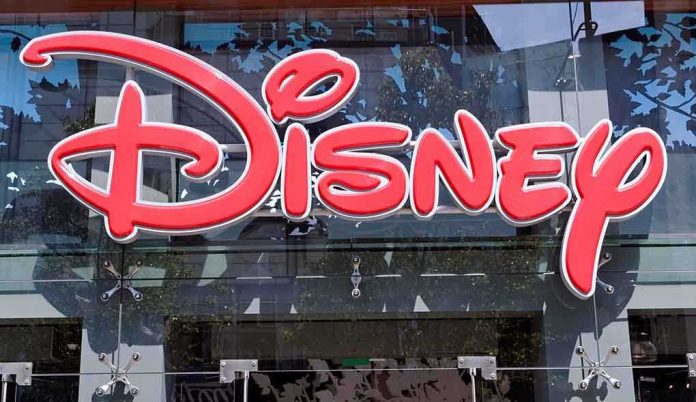
Disney’s stock plummeted 5% in premarket trading as the entertainment giant’s traditional TV business continues its steep decline, missing revenue expectations while hemorrhaging viewers and advertisers.
Story Snapshot
- Disney stock dropped 5% after missing quarterly revenue expectations of $22.46 billion
- Traditional TV networks suffered from declining advertising revenue and shrinking viewership
- Political advertising decisions cost the company an estimated $40 million in lost revenue
- Sports programming provided only modest gains, insufficient to offset broader network losses
Revenue Miss Signals Deeper Industry Problems
Disney reported quarterly revenue of $22.46 billion, falling short of analyst expectations and triggering a sharp 5% decline in premarket trading Thursday.
The disappointing results highlight the accelerating collapse of traditional television, as even entertainment giants struggle to maintain profitability in an increasingly fragmented media landscape.
This revenue shortfall reflects broader challenges facing legacy media companies that have prioritized political messaging over audience appeal.
Traditional TV Networks Face Triple Threat
The company’s domestic television networks experienced a perfect storm of declining metrics, with lower advertising revenue, shrinking viewership, and reduced demand from traditional advertisers.
These challenges underscore how Americans are abandoning mainstream media outlets that have alienated conservative audiences through years of biased coverage and woke programming.
The shift represents a fundamental rejection of corporate media’s attempts to control public discourse rather than inform viewers.
Political Ad Boycott Costs Disney Millions
Disney absorbed a significant $40 million hit from political advertising decisions, demonstrating how the company’s previous alignment with leftist causes continues to impact its bottom line.
This substantial loss illustrates the financial consequences when entertainment companies prioritize progressive activism over serving their diverse customer base. Even modest gains in sports programming couldn’t offset these self-inflicted wounds from Disney’s decision to engage in partisan politics.
The entertainment giant’s struggles reflect a broader reckoning within the media industry, as companies that embraced divisive political stances now face the financial reality of alienated audiences.
Conservative families, who historically formed Disney’s core demographic, have increasingly sought alternative entertainment options that respect traditional values rather than promote progressive ideologies.
Sources:
DIS stock today: Why Disney shares are dropping after mixed earnings report




